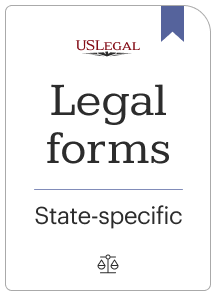

This form is a generic example that may be referred to when preparing such a form for your particular state. It is for illustrative purposes only. Local laws should be consulted to determine any specific requirements for such a form in a particular jurisdiction. The South Carolina Affidavit of Mailing is a legal document used to verify and document the mailing of important correspondence or documents. It serves as evidence that a specific piece of mail was properly sent, received, and acknowledged by the intended recipient. This affidavit is widely used in legal proceedings, business transactions, and various administrative processes. Keywords: South Carolina, Affidavit of Mailing, legal document, verify, document, mailing, correspondence, documents, evidence, sent, received, acknowledged, intended recipient, legal proceedings, business transactions, administrative processes. There are different types of South Carolina Affidavit of Mailing, each tailored to specific situations: 1. Affidavit of Mailing — General: This type of affidavit is commonly used to certify the mailing of general correspondence, such as letters, notices, or invoices. It states the date of mailing, the sender's name and contact information, the recipient's name and address, and details about the contents of the envelope or package being sent. 2. Affidavit of Mailing — Certified Mail: This affidavit is specifically used when sending important or sensitive documents via certified mail. It includes additional information, such as the tracking number, the signature of the person accepting the mail, and any delivery notifications or receipts. 3. Affidavit of Mailing — Legal Proceedings: In legal proceedings, a specialized version of the affidavit is often required. This document confirms the proper mailing of legal notices, court documents, or summons. It may include specific language required by the court, such as notifications about the consequences of non-compliance or failure to respond. 4. Affidavit of Mailing — Business Transactions: For business transactions, an affidavit may be required to verify the mailing of contracts, agreements, invoices, or any documents relevant to the transaction. This affidavit may also include information about the delivery method used, such as registered mail or overnight courier services. 5. Affidavit of Mailing — Administrative Processes: In administrative processes involving government agencies, an affidavit of mailing may be necessary to demonstrate compliance with specific filing requirements. This affidavit could be used when submitting applications, licenses, permits, or any other documents to government entities. Utilizing the South Carolina Affidavit of Mailing ensures accountability and transparency in all mail-related activities, protecting the rights of both senders and recipients. It serves as solid evidence in case of disputes or legal proceedings, reliably documenting the timely and accurate delivery of important correspondence. Note: It is recommended to consult with a legal professional or relevant authorities to ensure compliance with specific South Carolina laws and regulations when utilizing the Affidavit of Mailing.
The South Carolina Affidavit of Mailing is a legal document used to verify and document the mailing of important correspondence or documents. It serves as evidence that a specific piece of mail was properly sent, received, and acknowledged by the intended recipient. This affidavit is widely used in legal proceedings, business transactions, and various administrative processes. Keywords: South Carolina, Affidavit of Mailing, legal document, verify, document, mailing, correspondence, documents, evidence, sent, received, acknowledged, intended recipient, legal proceedings, business transactions, administrative processes. There are different types of South Carolina Affidavit of Mailing, each tailored to specific situations: 1. Affidavit of Mailing — General: This type of affidavit is commonly used to certify the mailing of general correspondence, such as letters, notices, or invoices. It states the date of mailing, the sender's name and contact information, the recipient's name and address, and details about the contents of the envelope or package being sent. 2. Affidavit of Mailing — Certified Mail: This affidavit is specifically used when sending important or sensitive documents via certified mail. It includes additional information, such as the tracking number, the signature of the person accepting the mail, and any delivery notifications or receipts. 3. Affidavit of Mailing — Legal Proceedings: In legal proceedings, a specialized version of the affidavit is often required. This document confirms the proper mailing of legal notices, court documents, or summons. It may include specific language required by the court, such as notifications about the consequences of non-compliance or failure to respond. 4. Affidavit of Mailing — Business Transactions: For business transactions, an affidavit may be required to verify the mailing of contracts, agreements, invoices, or any documents relevant to the transaction. This affidavit may also include information about the delivery method used, such as registered mail or overnight courier services. 5. Affidavit of Mailing — Administrative Processes: In administrative processes involving government agencies, an affidavit of mailing may be necessary to demonstrate compliance with specific filing requirements. This affidavit could be used when submitting applications, licenses, permits, or any other documents to government entities. Utilizing the South Carolina Affidavit of Mailing ensures accountability and transparency in all mail-related activities, protecting the rights of both senders and recipients. It serves as solid evidence in case of disputes or legal proceedings, reliably documenting the timely and accurate delivery of important correspondence. Note: It is recommended to consult with a legal professional or relevant authorities to ensure compliance with specific South Carolina laws and regulations when utilizing the Affidavit of Mailing.